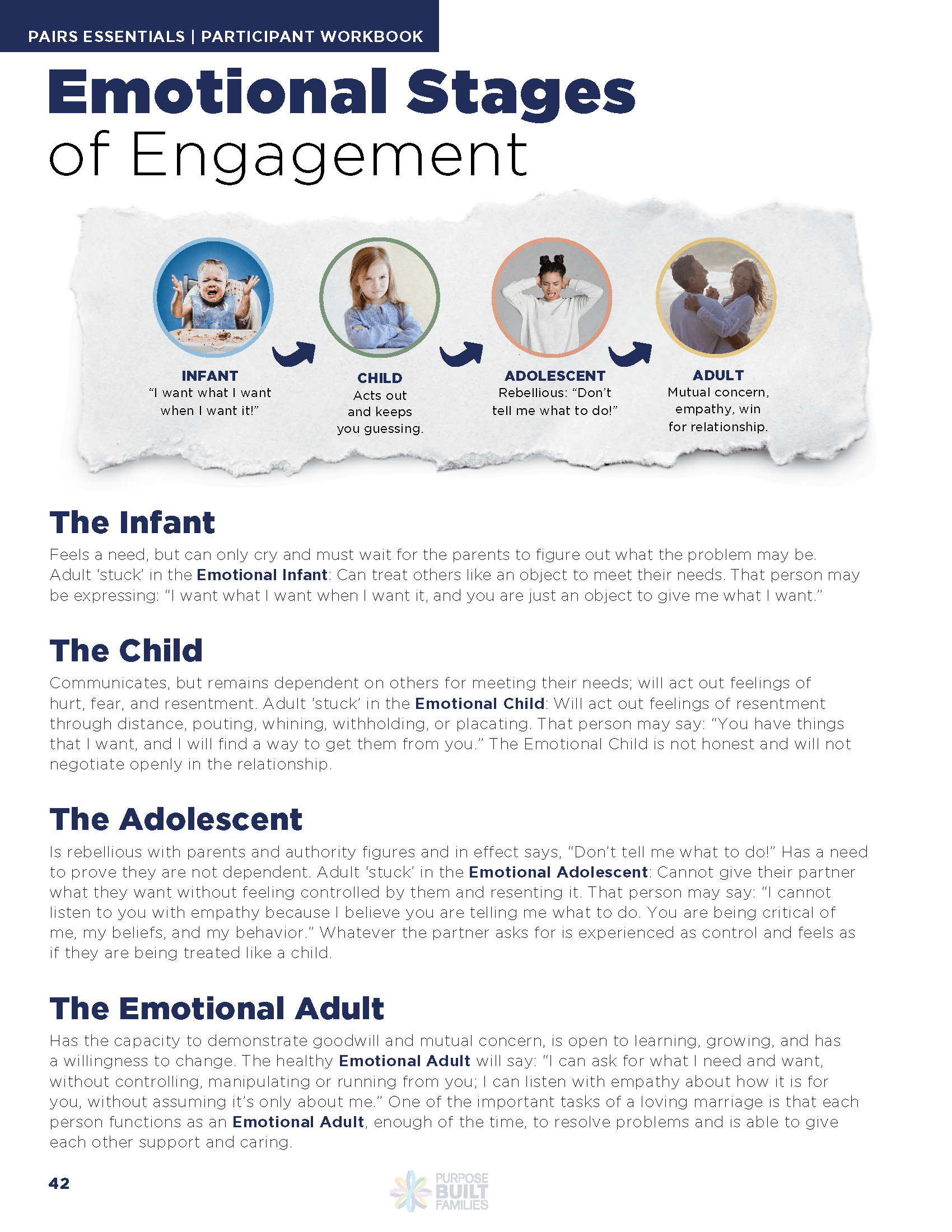The Infant
Feels a need, but can only cry and must wait for the parents to figure out what the problem may be.
Adult ‘stuck’ in the Emotional Infant: Can treat others like an object to meet their needs. That person may be expressing: “I want what I want when I want it, and you are just an object to give me what I want.”
The Child
Communicates, but remains dependent on others for meeting their needs; will act out feelings of hurt, fear, and resentment. Adult ‘stuck’ in the Emotional Child: Will act out feelings of resentment through distance, pouting, whining, withholding, or placating. That person may say: “You have things that I want, and I will find a way to get them from you.” The Emotional Child
is not honest and will not negotiate openly in the relationship.
The Adolescent
Is rebellious with parents and authority figures and in effect says, “Don’t tell me what to do!” Has a need to prove they are not dependent. Adult ‘stuck’ in the Emotional Adolescent: Cannot give their partner what they want without feeling controlled by them and resenting it. That person may say: “I cannot listen to you with empathy because I believe you are telling me what to do. You are being critical of me, my beliefs, and my behavior.” Whatever the partner asks for is experienced as control and feels as if they are being treated like a child.
The Emotional Adult
Has the capacity to demonstrate goodwill and mutual concern, is open to learning, growing, and has a willingness to change. The healthy Emotional Adult
will say: “I can ask for what I need and want, without controlling, manipulating or running from you; I can listen with empathy about how it is for you, without assuming it’s only about me.” One of the important tasks of a loving marriage is that each person functions as an Emotional Adult, enough of the time, to resolve problems and is able to give each other support and caring.
